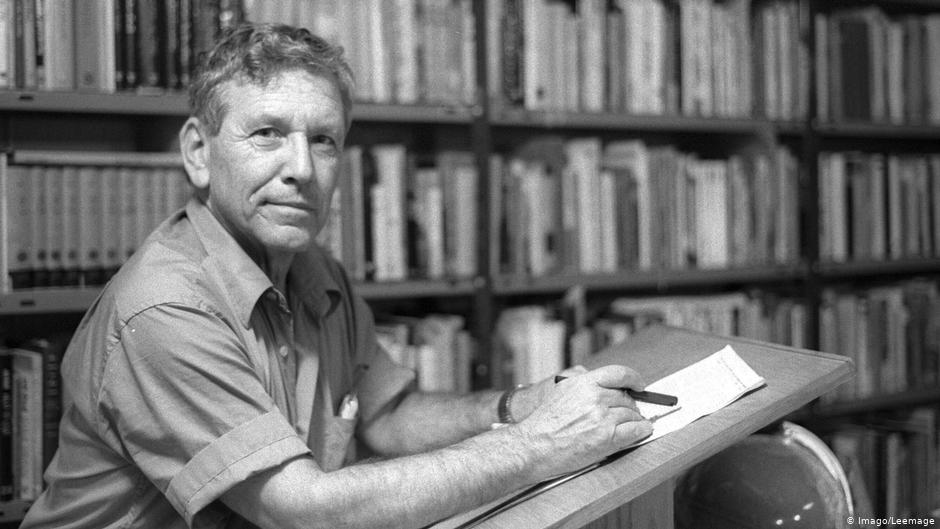I just finished listening to „Scenes From Village Life” by Amos Oz, a novel in the form of a collection of stories from an imaginary village by the name of Tel Ilan in Israel.
In the penultimate story, “Singing”, there is a brilliantly written „breathing scene“. One evening, people from the village come together for a sing-along at the home of Dalia and Avraham Levin. Four years previously their son had committed suicide, shot himself in the head under his parents‘ bed, where he lay curled up and dead for a day and a half, without his parents noticing. The story’s nameless narrator is part of the party of singers but feels himself increasingly drawn away from the party and towards the master bedroom upstairs which hasn’t been used since the suicide. He doesn‘t understand what’s happening to him but as he stands alone in the darkened, death-filled room – in stark contrast to the communal activity downstairs, he knows that this is where he is meant to be. And just at that moment, he hears his own breath in the silence after the singers have stopped singing.
This is the excerpt:
„I cautiously opened the third door on the right. I was greeted by cold, distress and darkness. The air smelt as though the room had not been opened for a long time. I shone the torch inside, and saw shadows of furniture that swayed and merged as my hand holding the torch shook. The wind and the hail battered the closed shutters. The feeble light was reflected back at me from a large mirror on the door of the wardrobe, as though someone were trying to blind me. The stale odour in the room was a smell of dust and unchanged bedclothes. It was evidently a long time since anyone had opened a door or window here. There must be cobwebs in the corners of the ceiling, although I couldn’t make them out. I could distinguish some pieces of furniture, a small chest of drawers, a chair, another chair. As I stood in the entrance I felt an urge to close the door behind me and lock it from the inside. My feet drew me inwards, into the depths of the room. The sound of singing downstairs was fainter now, no more than a soft murmur that was lost in the roar of the wind and the clawing of the hail on the bedroom shutters. Outside, the garden must be wrapped in mist that blurred the outlines of the cypresses. There would be no living soul on Pumphouse Rise. Only the goldfish would be swimming, indifferent to the hail and the rain, in the pond that was lit from beneath by an electric beam. And the artificial waterfall would be trickling down the rockery and disturbing the surface of the water.
A big bed stood under the window, with a small bookcase on either side. There was a carpet on the floor and I took off my shoes and socks. The carpet was thick and deep, and felt soft and strange under my bare feet. I directed the beam of the torch at the bed and saw that it was covered with a bedspread on which were scattered some cushions. I had an impression that far away on the floor below me they were singing ‘Can you hear my voice, my distant one?’, but I could not be sure what my ears were hearing, or of what my eyes could see by the trembling light of the torch. There was a constant slow movement in the room, as if someone big and heavy were stirring sleepily in a corner, or crawling on all fours, or clumsily tumbling over and over, between the chest of drawers and the closed window. It must have been the quivering of the torch that produced this illusion, but I felt that behind my back, too, where the darkness was total, something was slowly creeping. I had no idea where from or where to. What was I doing here? I had no answer to the question. And yet I knew that this abandoned bedroom was where I’d been wanting to come since the beginning of the evening and maybe for a long time before. I suddenly heard the sound of my own breathing and felt sorry that my breath punctured the damp silence that filled the room, since the rain had stopped, the wind had died down, and the singers downstairs had abruptly stopped singing. Maybe it was finally time for wine and cheese. I had no desire for wine or cheese. I had no further reason to turn my back on despair. So I got down on my hands and knees at the foot of the double bed and, rolling back the bedspread, I tried to grope with the pale beam of my torch into the dark space underneath.“
(Note: the end of the excerpt is also the end of the story.)
Source: Amos Oz, Scenes from Village Life, Random House Publishing

